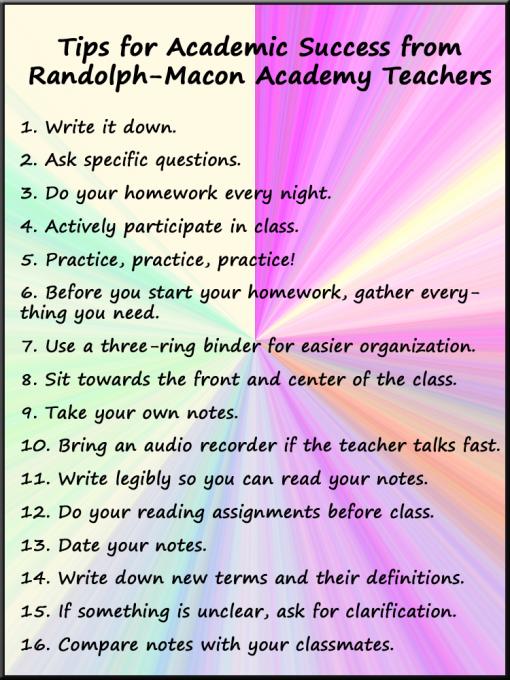The Daily Insight
Stay updated with the latest news and insights.
Study Like a Pro: Secrets They Didn’t Teach You in School
Unlock the ultimate study hacks! Discover secrets they never taught you in school and elevate your learning game today!
Mastering Effective Study Habits: Strategies Beyond the Classroom
In today's fast-paced learning environment, mastering effective study habits is crucial to academic success. Beyond the classroom, students can adopt a variety of strategies to enhance their learning experience. One foundational approach is to establish a dedicated study space that promotes focus and minimizes distractions. Additionally, utilizing techniques such as the Pomodoro Technique, where study sessions are broken into 25-minute intervals with short breaks, can improve retention and concentration.
Furthermore, creating a structured study schedule is essential for managing time effectively. Consider implementing a mix of active learning techniques such as summarization, self-testing, and teaching others, which can deepen understanding and reinforce material. A helpful resource for developing these habits is the Vanderbilt University Center for Teaching, which offers a variety of study tips and strategies tailored to different learning styles. By going beyond traditional study methods and incorporating these practices, students can significantly enhance their academic performance.

The Science of Memory: How to Retain Information Like a Pro
The Science of Memory is a fascinating field that explores how we encode, store, and retrieve information. Understanding the mechanisms of memory can significantly enhance our ability to retain information. One effective method to improve memory retention is through the use of mnemonics, which are tools that aid in encoding information in a way that makes it easier to remember. Techniques such as the method of loci, which involves visualizing a familiar place and associating information with specific locations, can lead to better retention rates. Additionally, engaging multiple senses while learning—such as incorporating sounds, images, or movement—can enhance memory formation by creating more robust neural connections.
Another vital aspect of memory is the concept of spaced repetition, which refers to reviewing information at gradually increasing intervals. This technique leverages the brain's natural forgetting curve and has been shown to significantly improve long-term retention. Utilizing tools like flashcards for spaced repetition can make learning more efficient and effective. Furthermore, fostering a growth mindset and maintaining a healthy lifestyle through proper nutrition and regular exercise can also promote optimal brain health, thus enhancing memory capabilities. Aim to incorporate these strategies into your daily routine to unlock your potential and retain information like a pro.
Are You Studying Efficiently? Common Mistakes and How to Fix Them
Are you studying efficiently? Many students unknowingly make critical mistakes that hinder their ability to absorb information effectively. One common error is cramming for exams rather than engaging in consistent study habits. Cramming might lead to short-term retention but isn't sustainable for long-term learning. Instead, explore techniques like spaced repetition and active recall. These methods not only help in memory retention but also ensure a profound understanding of the subject matter.
Another prevalent mistake is not having a designated study area. A cluttered or distracting environment can significantly impact your concentration. To maximize productivity, create a dedicated space that is quiet and free from interruptions. Additionally, consider utilizing time management techniques such as the Pomodoro Technique which encourages frequent breaks to maintain focus and reduce mental fatigue. By avoiding distractions and developing a structured study routine, you can significantly enhance your studying efficiency.